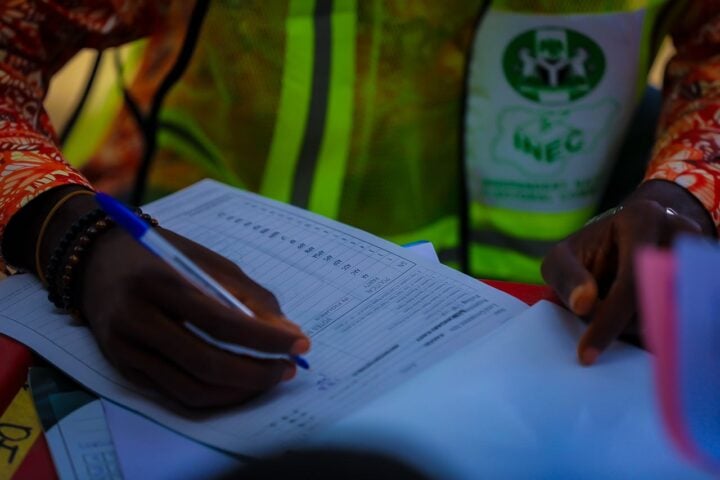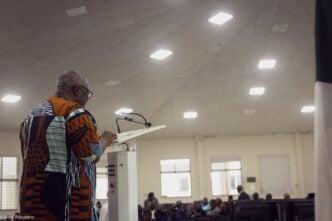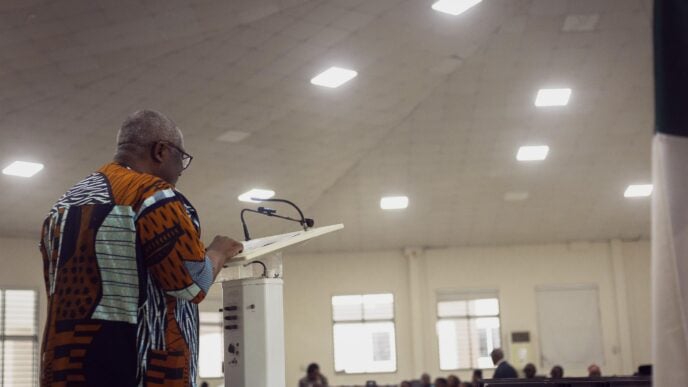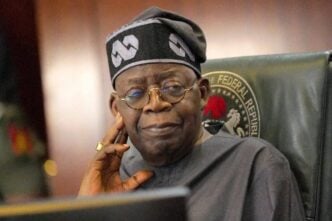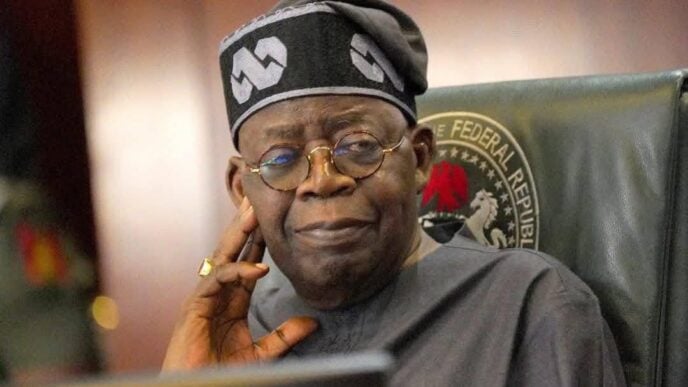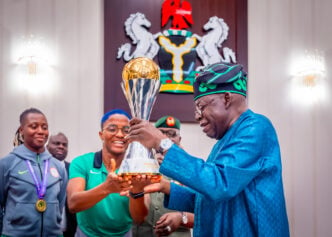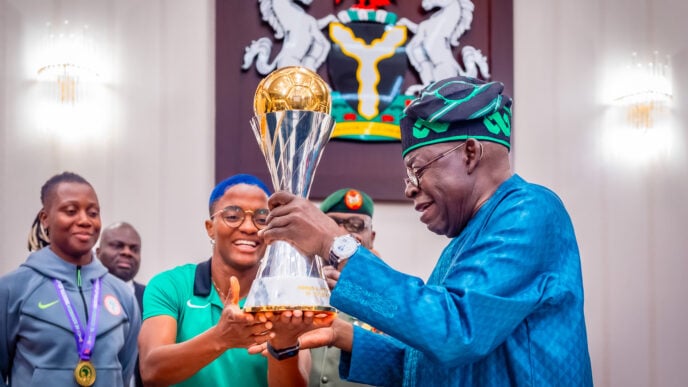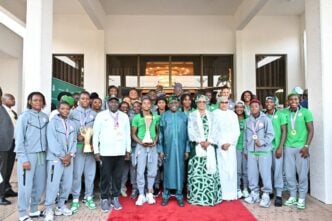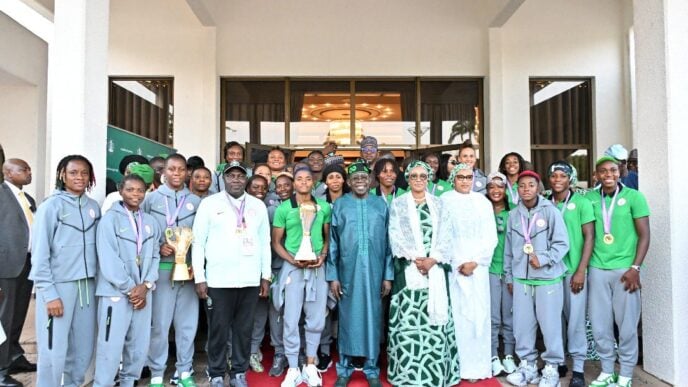File photo of an INEC official on election duty
Let’s call it what it is: the art of outmanoeuvring power is not with thuggery or ballot snatching, but with precision, planning, and public sentiment. Nigeria’s political terrain isn’t just a battlefield; it’s a performance stage, and the audience is more awake than we assume. The real trick to unseating an incumbent is not to beat them at their own game but to play a better one that’s louder, smarter, and far more intentional.
From my personal observations and research drawn from Nigeria’s electoral history especially the landmark 2015 general election, and the political landscape from 2023 to now—it’s evident that defeating an incumbent is possible.
But it requires strategy, not sentiment. Coordination, not chaos. Below is a sarcastically honest, but deeply informed six-step playbook on how it’s done.
1. Make the Incumbent Unpopular — Let Reality Do the Campaigning
Advertisement
In 2015, the opposition didn’t need a miracle. They had something more potent: fuel queues, rising insecurity, and corruption fatigue. The Goodluck Jonathan administration, whether through complacency or poor optics, essentially campaigned for the opposition. The fuel scarcity alone was enough to kill any “Transformation Agenda” PR.
Fast forward to 2023–2025: we are living through naira scarcity, food inflation, and insecurity, all wrapped in something called “palliative governance”. The current administration’s biggest challenger isn’t the opposition but its own headlines. The key is to amplify these realities legally and relentlessly. You don’t need to fabricate anything. The system is fighting itself. Just hold the megaphone steady.
2. Build a Coalition (Even If You Secretly Hate Each Other)
Advertisement
Muhammadu Buhari’s 2015 victory didn’t fall from the sky. It was the result of a complex merger: ACN’s media muscle from the south-west, CPC’s northern base, ANPP’s forgotten structure, and nPDP’s political wallet. Ideology didn’t bind them. A shared grievance against the incumbent did.
Opposition unity isn’t about love but it’s about strategy. The unifying factor? Hatred of the status quo. Nigeria is one of the few countries where political enemies make better allies than friends. As I often say, sleep with your political enemy tonight to wake up in Aso Rock tomorrow. Discomfort is temporary; power is addictive.
3. Control the Narrative — Own the Streets and the Screens
2015’s “Change” slogan trended harder than any policy paper. It was simple, catchy, and emotionally loaded. The ruling party had the government, but the opposition had the people’s imagination. In 2025, policy doesn’t trend but memes do.
Advertisement
Today’s voter isn’t just at polling units; they’re on TikTok, Twitter, Instagram, and in group chats. Hashtags like #FuelSubsidyGone, #NairaMess, and #TinubuWhereAreYou say more than press releases ever will. The digital space is the new battleground. Win the screen and you’ve halfway won the street. The ballot box may be physical, but the mind is digital.
4. Secure the North — the Demographic Weapon
You can win Lagos and still lose Nigeria. This truth hurts, but it’s mathematically sound. 2015 taught us that the path to Aso Rock passes through Kano, Katsina, Kaduna, and the rest of the northern voting bloc. The numbers are not just significant, they are decisive.
Any opposition coalition without a northern anchor is simply rehearsing, not contesting. Whether it’s a Kwankwaso-Atiku alliance or another northern political powerhouse, building a strategy that speaks the language that is both literal and political of the north is non-negotiable. Rigging out an incumbent begins by rigging in a viable northern strategy.
Advertisement
5. Win INEC by Default, Not Design
Let’s be realistic: you don’t control INEC. But here’s what you can do; make it too scared to misbehave. In 2015, international pressure, media vigilance, and citizen awareness made INEC delays costly and unacceptable.
Advertisement
As we approach 2027, transparency demands, global attention, and an increasingly informed electorate are powerful deterrents to blatant manipulation. You don’t need to control the umpire but just make sure they know the world is watching. That fear alone can enforce fairness.
6. Stay Calm, Let the Incumbent Panic
Advertisement
Power is a paradox. The closer you are to losing it, the more reckless you become trying to keep it. Insecure power often defeats itself through arrogance, disconnection, and propaganda nobody believes. You don’t need to start the fire. Just bring the firewood and let their own contradictions do the rest.
Opposition leaders must resist the urge to match propaganda with counter-propaganda. Let the absurdities speak for themselves. Stay calm, consistent, and connected to the people. The incumbent will unravel under the weight of their own missteps.
Advertisement
In Summary
You don’t need to rig an incumbent out, make sure they rig themselves out.
Nigeria is a political stage. If you play the role of “change” convincingly enough, the crowd will reward you with applause and votes. The trick isn’t to steal the election. It’s to make the people steal it for you, willingly and lawfully, with their ballots.
Opposition is not about noise. It’s about timing, message discipline, coalition building, and capturing the national imagination. If the incumbent is busy lighting fires, don’t grab a bucket but grab a camera.
Caveat
This article is based on my research and observations as a student of Nigerian politics. It does not reflect support for any party, individual, or coalition in the past, present, or future. It is written purely to educate, provoke thought, and strengthen our democratic instincts.
Kunle Lawal is the executive director of Electoral College Nigeria
Views expressed by contributors are strictly personal and not of TheCable.

